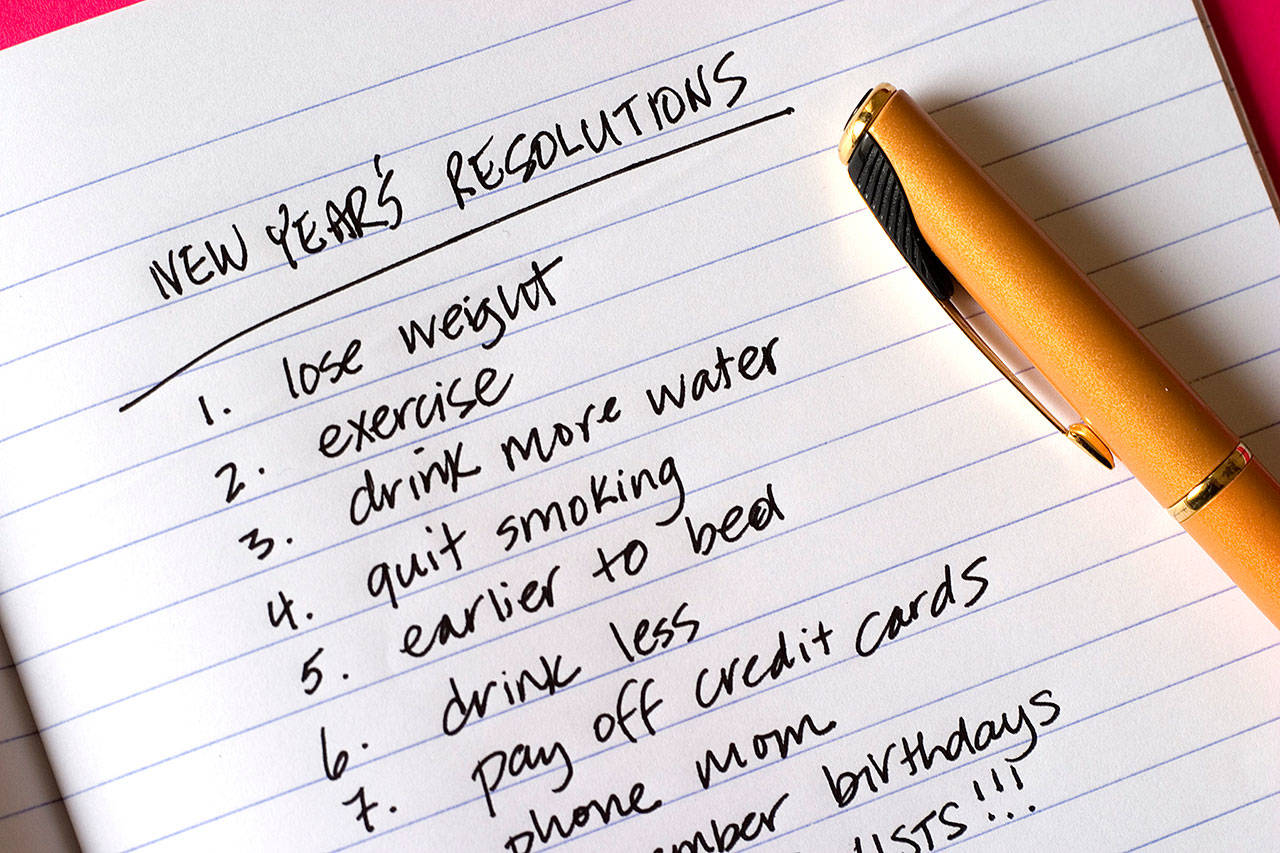Happy New Year! We’re notorious for making new year’s resolutions in January — most of which are never kept longer than two weeks.
It’s when those of us who are fed up with extra weight, poor eating habits or just plain tired of not feeling their best to swear to make changes that include eating healthier and, yes, exercising more. (We’ve all said it, but far fewer have followed through and done it, right?!)
The best way to make lifestyle and nutrition changes is to take it one step at a time — just one — and master that step before taking on another challenge. That way, the new change becomes a habitual thing and not something you need to think about and put energy into.
Habits are behaviors that are automatic — but not at first. At first, they require awareness, practice and consist execution until they feel like a regular part of your day. Build on the new habits by adding one every month. Building habits more slowly will allow you to pay attention to them, be dedicated to that change and overcome all the barriers that get in the way of making that change. Sound familiar?
Many of us rush to make too many changes in our diet and activity routines, and then end up deserting all of them by February.
Being patient with yourself as you execute each change will increase the chance that you will sustain it. Each new habit will help you create a total lifestyle that supports health and well-being. Instead of creating a long, overwhelming list of what you want to do better, try focusing on just one simple thing per month.
Here are five important nutrition steps to consider adopting as a habit into your daily routine that have proven health benefits:
Eat slower. Set a timer for 25 minutes, focus on dinner conversation and the taste of your food. Enjoy it. Chew more, take smaller bites and set your utensils down between each bite.
Stop eating after 7 p.m. This is especially beneficial if you are trying to maintain or lose weight. An overnight fast of at least 12 hours has been shown in recent studies to help regulate metabolism, aiding in weight loss and weight maintenance.
Eat breakfast. If you don’t eat breakfast, then try a pseudo-breakfast like a cereal bar. Fueling your body with whole grains, whole fruit or 100% juice, lean protein (including low-fat dairy) is important to start the day and give your brain and body energy. It’s the No. 1 action that people who have lost weight and kept it off declare helps them prevent weight gain and keeps them on track.
Eat lean protein. Try eating a source of lean protein — such as such as low-fat or non-fat dairy products, legumes, poultry, eggs, lean cuts of beef and pork, fish and seafood — at every meal to support muscle health.
Eat nuts. Add one serving (¼ cup) of nuts to your daily diet. Nuts are filled with protein, healthy fats, fiber and antioxidants and deliver amazing health benefits — even in weight loss — so they are worth the calories!
Here’s wishing you the best of health in the new year!
Disclaimer: This is for information only and not intended as personal medical advice.
Kim Larson is a registered dietitian nutritionist, certified health and wellness coach and founder of Total Health. Visit www.totalhealthrd.com or www.facebook.com/totalhealthnutrition for more. Follow her on Twitter @healthrd.
Talk to us
> Give us your news tips.
> Send us a letter to the editor.
> More Herald contact information.

























